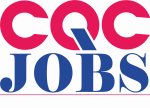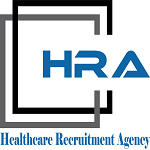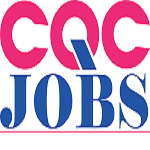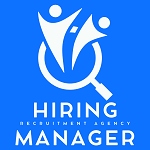Interview Preparation
As a trusted partner for organisations striving to meet Care Quality Commission (CQC) and Ofsted standards, CQC Jobs excels in the identification, attraction, and retention of qualified professionals dedicated to delivering exceptional care and education. Our expertise ensures employers consistently achieve and maintain compliance with CQC and Ofsted requirements, supporting high standards across both health and educational settings throughout the UK.
Best Practices for Interview Preparation for Healthcare Candidates in the UK
Preparing for an interview in the healthcare sector in the UK requires a strategic and thorough approach. This process is important as it can significantly influence the chances of securing a position in a competitive and regulated industry. Whether you are a nurse, doctor, healthcare assistant, or allied health professional, a well-prepared interview can demonstrate your commitment, skills, and fit for the role. The following best practices outline the essential steps candidates should take when preparing for healthcare interviews in the UK.
1. Understand the Role and Employer
Before attending any healthcare interview, it is critical to have a comprehensive understanding of the role you are applying for and the employer’s values, mission, and expectations.
Job Description Analysis: Start by analyzing the job description thoroughly. Take note of the key responsibilities, required skills, and qualifications. This allows you to align your experience and expertise with the specific needs of the job. Pay attention to the keywords or phrases that are used to describe the desired qualifications.
Research the Employer: Whether you are applying for a position in the NHS or a private healthcare provider, you should research the organization extensively. For NHS roles, explore the trust or health board you are applying to. Check their website, look for recent news, and understand their values and goals. If the position is within a specialized unit or department, learn about their specific services and focus areas.
CQC Reports: For jobs in hospitals, clinics, or care homes, reading the Care Quality Commission (CQC) reports can provide insight into the standards and challenges the organization faces. These reports can help you tailor your answers to show how you can contribute to improving or maintaining high standards of care.
2. Know the UK Healthcare System
Healthcare professionals in the UK, particularly those working for the NHS, need to have a sound understanding of how the healthcare system operates.
NHS Structure: Understand the basic structure of the NHS, including its four pillars: primary care, secondary care, tertiary care, and community care. Being familiar with how different healthcare providers work together within this system will allow you to speak knowledgeably during the interview.
NHS Values: The NHS Constitution sets out core values such as compassion, respect, and commitment to quality of care. Be prepared to demonstrate how your work ethos aligns with these values. Having specific examples of how you’ve shown commitment to patient care and ethical practice is crucial.
Current Healthcare Issues: Familiarize yourself with current issues facing the UK healthcare sector. This might include topics such as staff shortages, mental health services, waiting times, the impact of Brexit on healthcare, or the introduction of new healthcare technologies. An awareness of these topics shows that you are engaged with the broader healthcare landscape.
3. Prepare for Common Healthcare Interview Questions
Healthcare interviews often feature a blend of technical, competency-based, and situational questions. Being ready to answer these types of questions is essential.
Competency-Based Questions: These questions assess your ability to handle specific situations based on your past experiences. For example, you might be asked to provide examples of how you’ve worked under pressure, managed a difficult patient, or collaborated with a multidisciplinary team. Using the STAR technique (Situation, Task, Action, Result) can help you structure your responses clearly and effectively.
Example question: “Can you tell us about a time when you had to make a critical decision under pressure?”
Answer using STAR:
- Situation: “While working as a nurse in A&E, a patient arrived in critical condition following a car accident.”
- Task: “I was responsible for stabilizing the patient while communicating with the trauma team.”
- Action: “I followed the triage process and administered emergency treatment according to protocol, while updating the doctors with the patient’s vitals.”
- Result: “The patient stabilized and was later transferred to surgery, where they received further treatment. My quick actions ensured timely intervention.”
Clinical/Technical Questions: Be prepared for role-specific technical questions. These will vary based on your healthcare profession. For instance, nurses may be asked about safe medication administration, while doctors may face questions about clinical decision-making and protocols.
Values-Based Questions: Healthcare employers often include questions that explore your values and attitudes towards patient care. These are designed to assess whether you fit the culture of the organization, particularly in NHS roles.
Example question: “How do you ensure dignity and respect in patient care?”
Example answer: “I ensure that each patient is treated as an individual, respecting their personal beliefs, values, and preferences. I take time to explain treatments in a way they understand and ensure that consent is always informed. I also make sure that patients’ privacy is protected and their confidentiality maintained.”
4. Prepare Your Own Questions
Towards the end of the interview, you will likely be given the opportunity to ask your own questions. This is a crucial moment to show your interest in the role and the organization. Avoid asking questions that could have been easily answered through basic research (such as salary or shift patterns). Instead, focus on questions that demonstrate your eagerness to contribute positively to the organization.
Some good questions might include:
- “Can you tell me more about the opportunities for professional development within this role?”
- “How does the team collaborate with other departments to ensure continuity of patient care?”
- “What are the biggest challenges currently facing this department?”
5. Practice Mock Interviews
Practicing your interview skills can significantly improve your confidence and performance. If possible, arrange mock interviews with colleagues, mentors, or friends. If you are new to the UK healthcare system, consider working with a recruitment agency or a mentor familiar with the NHS interview format.
Some key areas to focus on during mock interviews:
- Speaking clearly and confidently
- Structuring your answers effectively using techniques like STAR
- Managing body language, eye contact, and active listening
- Handling difficult or unexpected questions calmly and professionally
6. Be Ready for Virtual Interviews
In recent years, many healthcare interviews, especially in the initial stages, have been conducted virtually. Preparing for a virtual interview involves additional considerations:
- Technical Setup: Ensure that your camera, microphone, and internet connection are working well before the interview. Test the software (Zoom, Microsoft Teams, etc.) ahead of time to avoid technical issues.
- Professional Environment: Choose a quiet, well-lit space where you will not be disturbed. The background should be neutral and free from distractions.
- Body Language: In virtual interviews, body language still matters. Sit up straight, make eye contact through the camera, and avoid fidgeting.
7. Prepare Documentation and Portfolio
For healthcare roles, you may be asked to provide various documents, including your qualifications, proof of right to work in the UK, and professional registration details (e.g., NMC or GMC). Make sure these are prepared and easily accessible.
- Portfolio: If relevant to your role, consider bringing a portfolio of your work. This might include evidence of continuing professional development (CPD), case studies, audit results, or feedback from patients and colleagues.
8. Mind the Attire and Presentation
In the healthcare sector, professionalism is paramount. Dress appropriately for the interview. Even if the interview is virtual, your attire should reflect a professional image.
- NHS Interviews: Business attire is standard. This demonstrates respect for the role and the organization.
- Private Sector: The same rules apply, but depending on the organization, you may want to research the dress code to ensure you fit the company culture.
Conclusion
By following these best practices, candidates can feel more confident and prepared for their healthcare interviews in the UK. Understanding the role, the employer, and the healthcare system, practicing common interview questions, and preparing documentation and professional presentations are all essential steps to success. With careful preparation, healthcare professionals can showcase their skills, values, and passion for patient care, increasing their chances of securing the position they seek.
Our Process
Candidate First
Our process is heavily reliant on extensive data access into internal and external candidate data centres
Extensive Candidate Network:
Access to a vast pool of qualified professionals across the UK.
Streamlined Hiring Process:
Efficient recruitment process saves time and resources for your organisation.
Specialised Expertise:
Focused exclusively on the human care sector for tailored recruitment solutions.
Book Your CQCJobs.com Discovery Consultation
Take the first step towards transforming recruitment for your care home or domiciliary service with CQCJobs.com. As a care home manager, HR professional, or senior leader in healthcare, you understand the importance of quality staffing, compliance, and reliable recruitment. We’re here to help you overcome staffing challenges and secure high-calibre candidates across the UK.
Our discovery call is more than just a conversation—it’s a focused, one-to-one consultation dedicated to understanding your service’s specific needs, exploring tailored solutions, and demonstrating how we can directly support your organisation. If you’re facing persistent vacancies, want to strengthen your compliance, or simply need a faster, more reliable way to recruit, our experienced team is ready with practical advice and proven strategies.
Why book a discovery call with us?
- Gain practical insights into our healthcare-focused recruitment methods
- Find out how our rigorous screening and retention processes support CQC compliance
- See how our partnership can save your service both time and resources
There’s no obligation and no fee—just the opportunity to explore how we can help your care setting build a more resilient and compassionate team.
Book your free discovery call today and take the next step towards confident, CQC-compliant recruitment.
Register Now for Free Healthcare Recruitment Support
For exceptional healthcare recruitment CQCJOBS.com enables employers to access rigorously vetted healthcare candidates, ensuring vacancies are filled promptly and to the highest professional standards. Experience confidence, peace of mind, trust, and excellence—start with a free trial today. Submit your details below to arrange a conversation with a dedicated recruitment consultant and discover how CQCJOBS.com can transform your healthcare recruitment process.
Partner with the Hiring Manager, where innovation and data-driven insights redefine recruitment. Operating across several strategic sites, we blend the power of comprehensive candidate data with our industry expertise to connect you with top-tier talent that aligns perfectly with your business needs. Our access to extensive internal and external candidate networks ensures a rapid, precise match, reducing hiring times, increased diversity and enhancing retention rates. Our work is to bring you not just candidates, but transformative professionals who drive growth and innovation. Choose Hiring Manager and advance your recruitment process to stay ahead in today’s competitive market.































